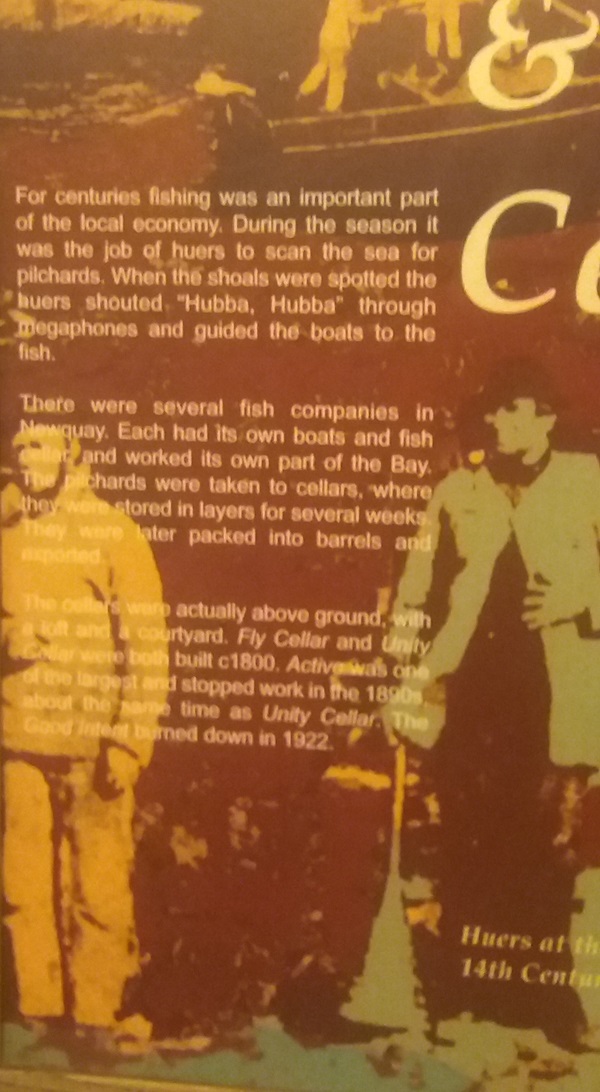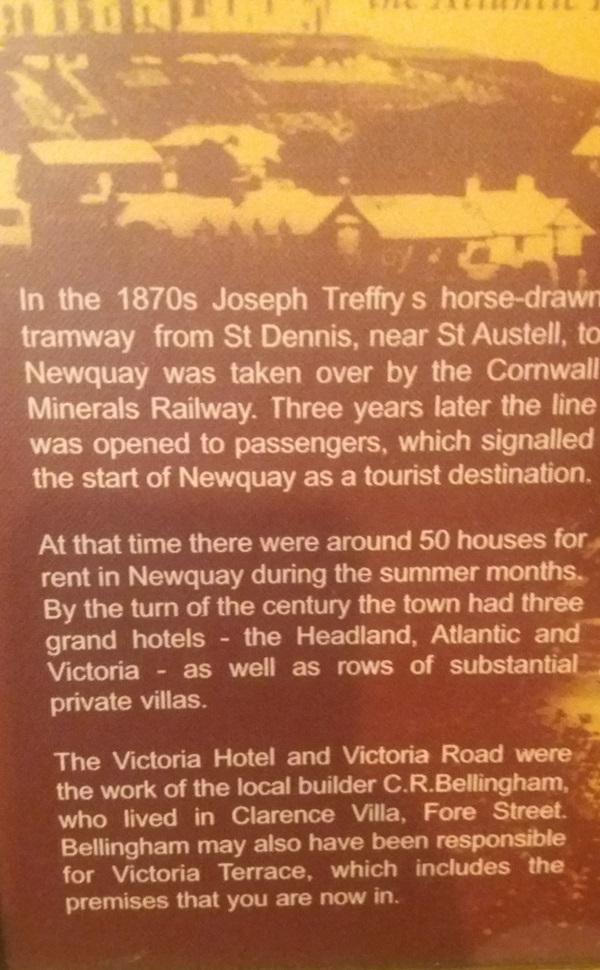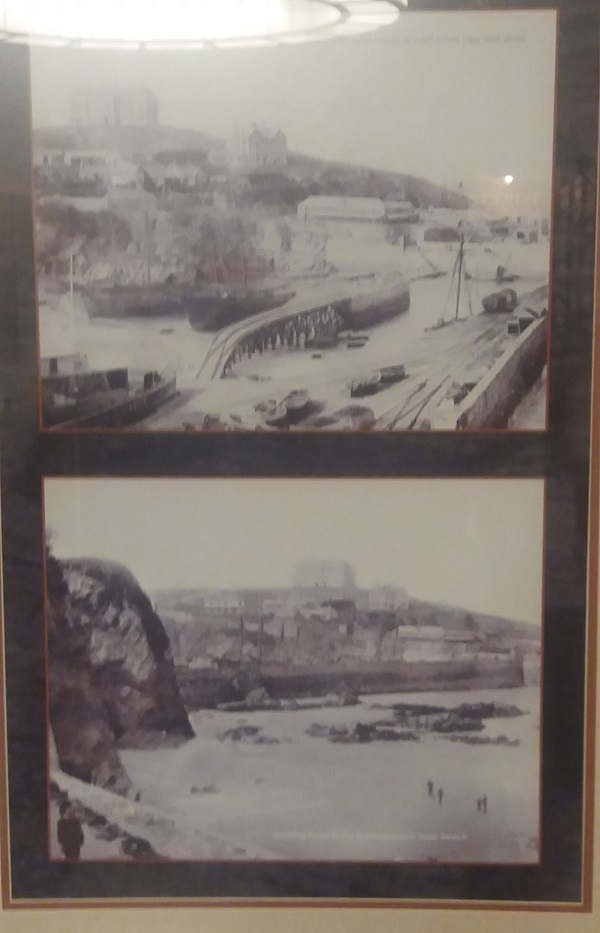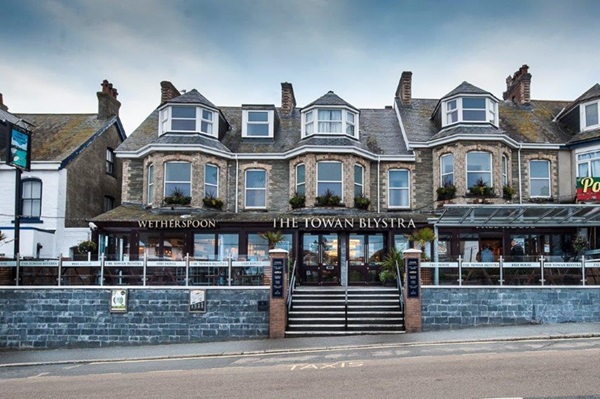12–16 Cliff Road, Newquay, Cornwall, TR7 1SG
The modern holiday resort of Newquay is first mentioned in written records in 1305, when it is given the Cornish name Tewynplustri, anglicised to Towan Blystra. However, in 1439, Bishop Lacey of Exeter granted an indulgence for the building here of ‘a new keye for the rode of shipping’. So began its modern name as two words – New Key, which ended in the present Newquay.
Text about fishing in Newquay.

The text reads: For centuries fishing was an important part of the local economy. During the season it was the job of huers to scan the sea for pilchards. When the shoals were spotted the huers shouted “hubba, hubba” through megaphones and guided the boats to the fish.
There were several fish companies in Newquay. Each had its own boats and fish cellar, and worked its own part of the bay. The pilchards were taken to cellars, where they were stored in layers for several weeks. They were later packed into barrels and exported.
The cellars were actually above ground, with a loft and a courtyard. Fly Cellar and Unity Cellar were both built c1800. Active was one of the largest and stopped works in the 1890s, about the same time as Unity Cellar. The Good Intent burned down in 1922.
The text about the history of Newquay.

The text reads: In the 1870s Joseph Treffry’s horse-drawn tramway from St Dennis, near St Austell, to Newquay was taken over by the Cornwall Minerals Railway. Three years later the line was opened to passengers, which signalled the start of Newquay as a tourist destination.
At that time there were around 50 houses for rent in Newquay during the summer months. By the turn of the century the town had three grand hotels – The Headland, Atlantic and Victoria – as well as rows of substantial private villas.
The Victoria Hotel and Victoria Road were the work of the local builder CR Bellingham, who lived in Clarence Villa, Fore Street. Bellingham may also have been responsible for Victoria Terrace, which includes the premises that you are now in.
Photographs of Newquay.

External photograph of the building – main entrance.

If you have information on the history of this pub, then we’d like you to share it with us. Please e-mail all information to: pubhistories@jdwetherspoon.co.uk